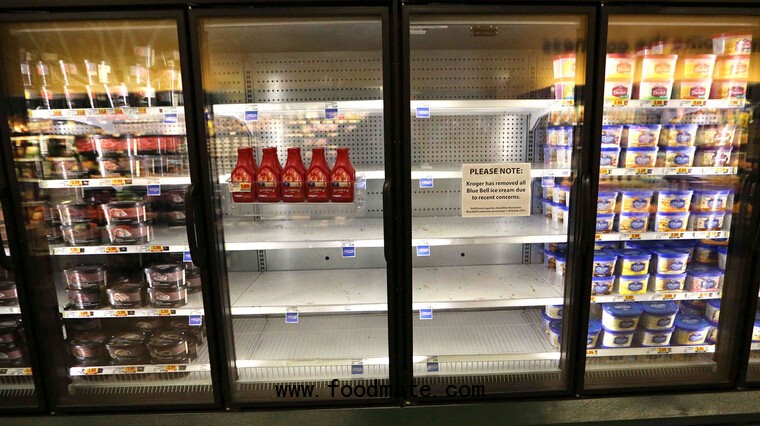
Months after an outbreak of deadly bacteria in ice cream that killed three and sickened seven more, U.S. regulators are near making food producers like Blue Bell Creameries Inc. have safety plans to minimize future outbreaks.
There hasn’t been a federal requirement that all food producers have a written-down plan. Blue Bell, the Texas-based ice cream maker, shut down most of its manufacturing and fired or furloughed most workers after the outbreak.
Two years after it was proposed, the Food and Drug Administration rule is on the brink of being made final and the agency is pushing for funding. The rule “would require that companies like Blue Bell have a written food safety plan, based on an analysis of likely hazards, and companies would have to show us that plan during inspections,” the FDA said in a blog post Wednesday.
Health officials have traced listeria contamination at Blue Bell back as far as 2010. Listeria is a sometimes-deadly bacteria that can survive cold temperatures and is hard to eliminate.
Listeria contamination of Blue Bell products sickened at least 10, three of whom died after they were served the ice cream products at a Kansas hospital. The company has halted production at plants in Texas, Oklahoma and Alabama.
The FDA proposal to require food safety plans is part of the agency’s implementation of the Food Safety Modernization Act passed by Congress in 2010.
The FDA and the Department of Agriculture require seafood, juice, meat and poultry processors to have plans to manage potential hazards, though many food companies that sell other products have implemented plans on their own, the FDA said when it proposed the rule. The Food Safety Modernization Act is an attempt to require plans across a wider part of the food industry.
Moving Forward
The FDA is supposed to make the rule final by Aug. 30, Jennifer Corbett Dooren, a spokeswoman for thee agency, said in an e-mail. President Barack Obama’s 2016 budget proposal asked for $109.5 million to help the FDA implement food safety law.
“If we receive that funding, we can move forward to implement this new, modern system in an effective and timely way,” Michael Taylor, the FDA’s deputy commissioner for foods and veterinary medicine, wrote in the blog post. “If we do not get the funding, we will lose momentum, and implementation will be badly disrupted.”
During inspections of Blue Bell facilities after the outbreak, the FDA found 26 total violations including lax sanitary practices, the agency said in reports. In addition, the company’s own testing of non-food contact areas at a facility in Oklahoma also turned up signs of listeria as early as 2013.
Blue Bell and state regulators in Texas and Oklahoma have agreed the company will inform state officials if it finds presumptive positive test results for listeria, according to the FDA. Blue Bell must also come up with a plan for how it will respond to presumptive positive tests and institute a “test and hold” program to ensure products are safe before being shipped.
Blue Bell said earlier this month it would take months before its plants are up and running again.





